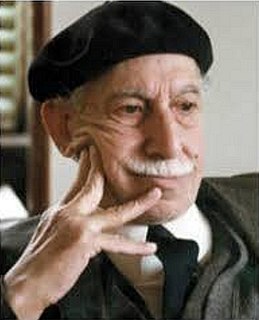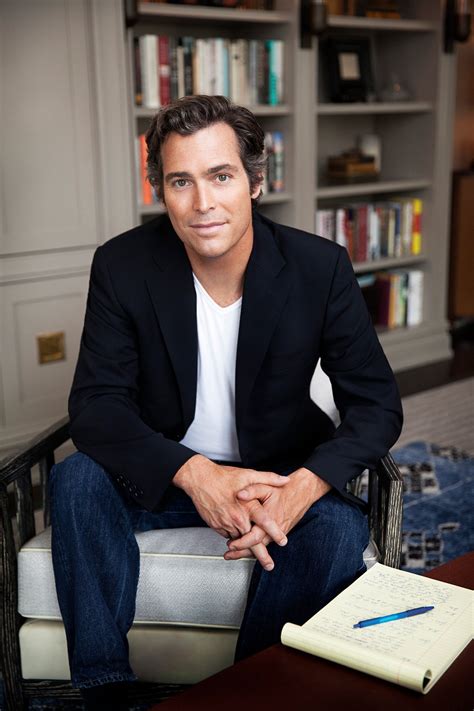A Quote by Eric Foner
Lincoln is such an iconic figure in American history. He seems to reflect so many elements of American culture that we consider essential, whether it's the self-made man, the frontier hero, the politician who tries to act in a moral way as well as in a political way, Honest Abe. His career raises these questions that are still with us, the power of the federal government vis-à-vis the states, the question of race in American life, can we be a society of equals? There are so many issues central to Lincoln's career that are still part of our society one hundred and fifty years later.
Quote Topics
Abe
Act
American
American Culture
American History
American Life
Career
Central
Consider
Culture
Elements
Equals
Essential
Federal
Federal Government
Fifty
Figure
Frontier
Government
Hero
His
History
Honest
Hundred
Iconic
Issues
Later
Life
Lincoln
Made
Man
Many
Moral
Our
Our Society
Part
Political
Politician
Power
Question
Questions
Race
Race In America
Raises
Reflect
Seems
Self
Self-Made
Society
States
Still
Tries
Us
Way
Well
Whether
Years
Related Quotes
The foreign audiences are somewhat surprised and happy to find an American film that asks questions about American culture. There's a certain kind of cultural imperialism that we practice. Our films penetrate every market in the world. I have seen and have had people reflect to me, maybe not in so many words or specifically, but I get the subtext of it - they're somewhat charmed and surprised and happy to see an American film reflect on our culture. Because they see other cultures reflect on our culture but they don't see US culture reflecting on itself in quite the same way.
Jack Kerouac seems to have been preoccupied with the question of duality from a very young age. He seemed to feel that there was more than one person inside him. Indeed he would veer from friendly, open and so on to someone who was angry. In a way, there was a swing also between his American self and what he later called his Franco-American older brother. There was a swing between the deeply introverted part of himself and the person he became out in the world, having to act in an extroverted way.
It's plain that the American right wing, the Republicans and some sections of the Democratic Party, don't really care about international norms. They believe in the executive authority of the president. They don't even believe the United Nations or international law should play any role vis-à-vis American policymaking.
The fact that an African American sits in the White House at the helm of government in the United States of America on this 150th anniversary of Abraham Lincoln's Emancipation Proclamation represents both phenomenal political symbolism and a victory of faith in democracy that should not be lost on any American.
I have tried to defend what is most precious to our American society, a society that is now at war against the forces of racial intolerance.A big part of me making the decision was how important the play is for the times that we live in. This is a classic. It's a masterpiece of American playwriting. It's about discrimination and it's about we Mexicans being a target for so many years.
Shouldn't the American leadership be addressing what is happening in America, with its domestic policies on racism, discrimination, illegal monitoring, solitary confinement, torture, Guantanamo Bay and any other social and political issues related to the American society not directly connected to Islam? American Muslims must speak out and be involved as well in international policies and, through their institutions, they should raise their voice. This is the way you serve the community.
The real invasion of South Vietnam which was directed largely against the rural society began directly in 1962 after many years of working through mercenaries and client groups. And that fact simply does not exist in official American history. There is no such event in American history as the attack on South Vietnam. That's gone. Of course, It is a part of real history. But it's not a part of official history.
Adam Clayton Powell's entire political career has to be looked at in the entire context of the American history and the history of, and the position of the Afro- American or negro in American history. [He] has done a remarkable job in fighting for rights of black people in this country. On the other hand, he probably hasn't done as much as he could or as much as he should because he is the most independent negro politician in this country.
From a distance, the American political system is a remarkable success. We have accomplished the peaceful transfer of power for more than two hundred years, and that's unmatched by any civilization in human history. Up close, our political system still has all the ugliness and bad actors that you might suspect.
Today, we have come a distance. We have made a lot of progress. That cannot be denied. You cannot dispute the fact that our country is so different from 50 years ago. But we still have problems. There are too many people that have been left out and left behind, and they are African American, they are White, Latino, Asian American, and Native American.
Many, if not most, of the difficulties we experience in dealing with government agencies arise from the agencies being part of a fragmented and open political system…The central feature of the American constitutional system—the separation of powers—exacerbates many of these problems. The governments of the US were not designed to be efficient or powerful, but to be tolerable and malleable. Those who designed these arrangements always assumed that the federal government would exercise few and limited powers.








































